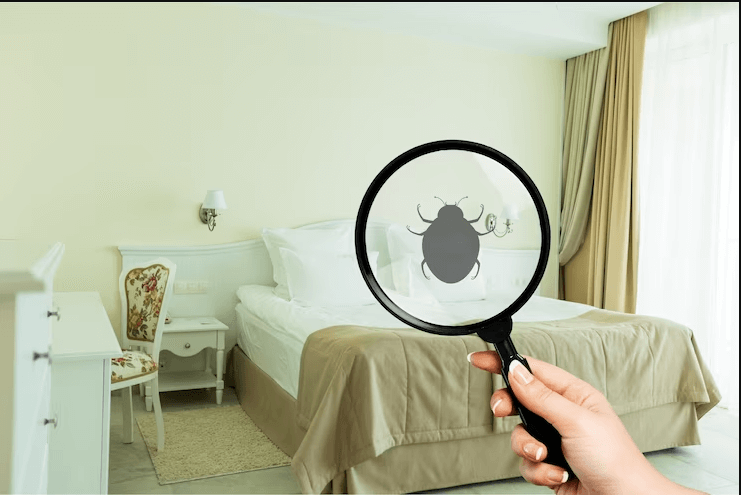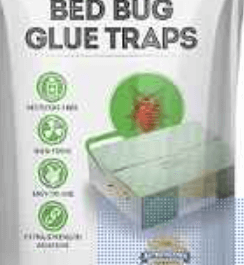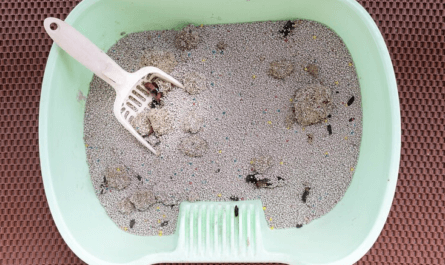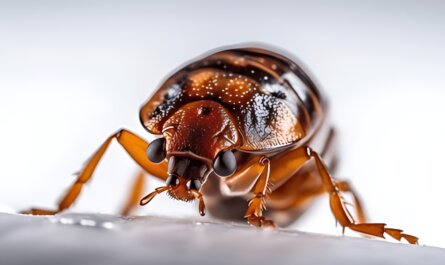Looking for a way to sleep peacefully despite the presence of bed bugs? Bed bugs typically infest someone’s home within just three months without being detected, causing discomfort and anxiety.
If you are dealing with a bed bug infestation in your house, you may be worried about where you can sleep comfortably. This blog is here to help! Here, we’ll share tips on how to prevent bites while sleeping, as well as alternative options if sleeping in another room isn’t possible.
So let’s get started and find ways to rest easy even with these pesky pests around!
Tips for Sleeping with Bed Bugs
To ensure a comfortable sleep while dealing with bed bugs, be sure to steam clean your mattress and bedding, use a bed bug mattress cover, wear long sleeves and pants to bed, and make use of essential oils to repel the pests.
Steam clean your mattress and bedding
Steam cleaning is a great way to kill bed bugs and their eggs on mattresses and bedding, but there a few things to consider. It’s important to choose the right steam cleaning machine for the job- industrial grade machines with continuous steam are recommended. Vacuuming first can help remove hairs, skin cells, dirt and other materials that won’t dissolve when steamed. A good practice is to use an encasement before and after treatment to prevent spreading bed bugs into other areas. Here are some tips for effective steam cleaning:
- Vacuum mattress and bedding prior to treating with hot steam
- Use an industrial grade steam cleaner with continuous jet stream
- Preheat the room or space before conducting the treatment
- Pay close attention to all creases, cracks, joints, and folds of the mattress
- Focus on seams and tufts before moving around the entire surface of the mattress
- Rehearse if necessary until you are comfortable with your technique before undertaking a full – scale treatment effort
- Allow the steam cleaned item to cool down before using it again
- Remember that while steam cleaning may provide a relatively short-term reduction in your bed bug problem, this will not eliminate long-term infestation without additional treatment options as well
Use a bed bug mattress cover
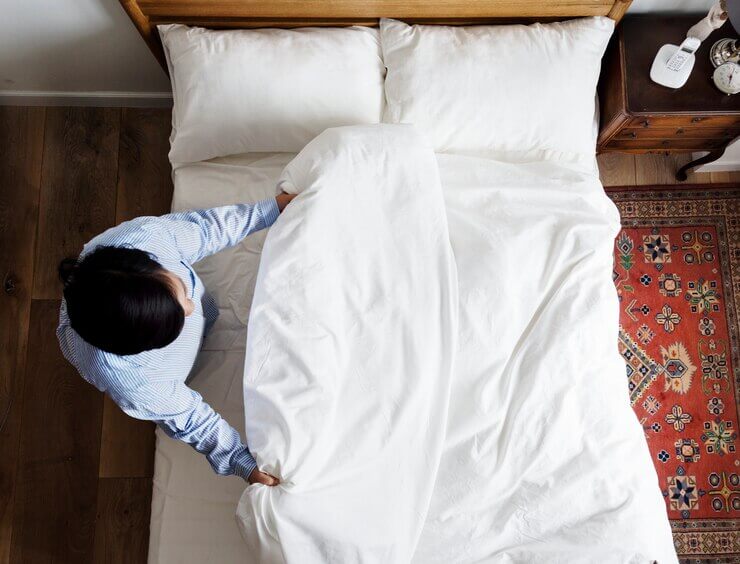
Bed bug mattress covers are an important aspect of preventing and managing bed bug infestations. Mattress encasements, or waterproof covers, are designed to securely seal mattresses and box springs, where bed bugs like to hide.
By fully enclosing the sleeping area in a protective barrier, these mattress covers can help keep any existing pests contained as well as prevent new ones from getting inside. Plus, since bed bugs will have no access to their favorite food – us – they’ll quickly find themselves without sustenance! Bed bug mattress covers also allow you the peace of mind knowing that your investment in furniture is being protected against future damage caused by pesky insects.
Even after treatment for a current infestation is completed and no visible signs remain, having a mattress cover will give you added assurance that your bed has been properly sealed off from any unwanted visitors while keeping dust mites out too!
Wear long sleeves and pants to bed
Wearing long sleeves and pants to bed can provide an effective barrier against bed bug bites. By covering the body with tight-fitting clothing that doesn’t leave any skin exposed, it prevents the bugs from coming into contact with your skin.
This is important because bed bugs will not be able to bite through layers of cloth, meaning they won’t have access to their preferred food source: human blood. In addition, wearing long sleeves and pants can also help protect against other biting insects as well.
When travelling or staying in unfamiliar environments due to infestation concerns, having a physical layer between you and unknown pests may prove invaluable for preventing unwanted insect bites over night.
Use essential oils to repel bed bugs
Many people who have bed bugs often wonder how to effectively keep them away without using chemical based solutions. Fortunately, essential oils can provide a natural and effective solution.
Essential oils that contain compounds like thymol, carvacrol, linalool, and camphor are proven to be effective in repelling bed bugs. Thymol and carvacrol contained in oregano oil have been known to successfully repel bed bugs for up to 24 hours when properly applied around the home.
Peppermint is a well-researched solution due to its strong scent which is known to keep away nasty critters of all kinds including bedbugs. Thyme oil has also been studied for its ability get rid of adult bed bug infestations right down scurrying larvae! In addition Campher tree oil, mixed with other ingredients such as vinegar or alcohol can be used together as an insecticide fumigant leaving your space smelling pleasantly fresh while getting rid of any Bug beasts!
Essential oils offer nonchemical solutions so you don’t need to worry about toxic residues lingering on furniture and clothing whereas more traditional pest control methods leave behind harmful toxins that could affect the health especially those who suffer from allergies or sensitivities.
Should You Sleep in Another Room?
With a bed bug infestation, it can be tricky to decide whether you should sleep in another room or try and stay in your own bed. Find out more about the best options for sleeping with bed bugs.
Can bed bugs follow you to other rooms?

Absolutely – bed bugs are notoriously resilient and capable of making the journey to other rooms in your house. Bed bugs can travel on people’s clothes, allowing them to spread from room-to-room throughout your home if one area already has an infestation.
Additionally, they tend to remain quite close (within 6-8 feet) of their host, so they’ll likely follow you from room-to-room if a single person carries them in this way. It is even possible for them to hitch a ride home with you from hotels or other places that have been previously infested – it doesn’t take much for these tiny pests to stow away in luggage or clothing items.
To avoid further contamination of multiple areas of your home and maintain better hygiene, it is best not only diligent inspect any secondhand furniture or belongings brought into the house but also vigilantly check all corners regularly using sticky traps for indications of activity before throwing out those items that may be contaminated with bed bug eggs or adults as soon possible.
Can you sleep in your bed after bed bug treatment?
The answer is yes, but it is important to carefully monitor the situation and take the necessary steps in order to ensure a successful bed bug treatment. A successful bed bug treatment will depend on factors such as correctly identifying insects or eggs, inspecting furniture and other objects for evidence of infestation, conducting subsequent inspections after completing recommended control procedures, using appropriate insecticides and vacuuming often.
It may take some time to determine if a treatment has been effective so homeowners need to be patient. Contacting a pest control specialist will help you get an expert opinion on the best course of action with regards to safety measures that should taken during this period.
Therefore continuing sleeping in your own bed until then may be advisable since moving around increases the risk of spreading these critters throughout your home.
Alternative Options for Sleeping
If you’re dealing with a bed bug infestation, there are various sleep alternatives you can look into such as sleeping on the floor with a protective barrier, staying in another room or even temporarily relocating to a hotel.
Read on to learn more about your options.
Sleep on the floor with a protective barrier
Sleeping on the floor with a protective barrier can be an effective way to reduce your risk of getting bed bug bites. This is especially true for those looking for an alternative option due to their bed being infested with these pests. A protective barrier will serve as a buffer from direct contact, making it more difficult for the bugs to get onto and into your skin.
Additionally, you may want to invest in mattress or pillow encasements, which help prevent dust mites and other small pests from gaining access as well. Doing so ensures that you are not directly exposed even if there are still some bugs left in your environment. Furthermore, make sure to wear long sleeves and pants when sleeping on the ground – this is because any chinks or cracks will give them easy access through clothing fabric directly onto your skin
- Steam cleaning
- Wear Long Sleeves & Pants
- Use Essential Oils
Sleep on a couch or air mattress in a different room
While sleep on a couch or air mattress in a different room may seem to be the most immediate and convenient option for dealing with bed bugs, it should not be an individual’s first line of defense against infestation. Sleeping on a sofa or air mattress can actually spread bed bug infestation to other areas of the home. Bed bugs are especially resilient pests since they hide away in small crevices and cracks in mattresses, pillows, nightstands, furniture and more – easily transported from one place to another.
Consider staying in a hotel or with friends/family temporarily
is a recommended option if you observed bed bugs in your home and need to find temporary housing. Spending the night at a hotel or staying with family or friends can be beneficial, as it allows you time to gather resources and plan an effective response without having to worry about adding additional guests for the bed bugs.
Hotels take important steps when managing hotels that have evidence of infestation; this includes training staff to detect signs of bed bug activity, providing guidelines on items not allowed in rooms, searching furniture before assigning them to individual rooms, inspecting regularly and professionally cleaning mattresses.
Additionally, all personal items must be cleaned prior to bringing these into another space; avail help from pest control professionals nears by who use heat treatment methods which offers guaranteed results eliminating any traces of the worms.
FAQs about Sleeping with Bed Bugs
Some of the main questions surrounding sleeping with bed bugs include how to sleep peacefully, if they will still bite if there are lights on, and how to prevent bites.
How to sleep peacefully with bed bugs
Sleeping peacefully with bed bugs can be a hard task, and it is important to understand the habits of these pests in order to do so. A professional inspection and extermination from a qualified pest control specialist is recommended if there are signs of an infestation, as this will ensure that all insects are destroyed and prevent future invasion.
It is also advised to continue sleeping in the same bed even after treatment; however it’s best to be proactive about measures you can take such as steam cleaning your mattress, using a bed bug mattress cover, wearing long sleeves and pants or spraying essential oils at home for further protection.
While some people may opt for sleeping elsewhere due to fear of being bitten by unwanted visitors during slumber , bed bugs actually don’t cause immediate pain when feeding or disturb sleep unlike other small critters.
Another misconception involves trying to deter them by keeping lights turned on while sleeping ; but unfortunately they remain unaffected since their body mechanisms depend more heavily upon smell than sight.
Will bed bugs bite if you sleep with the lights on?
Unfortunately, the answer to this question is not as simple as yes or no. Bed bugs can feed under bright lights and they have been known to do so at night if found in a home with lights on all throughout the sleeping hours.
They are also able to adjust their feeding cycle to accommodate for when people are sleepy or awake, which means that bed bugs will likely still be around searching for food even if one has kept the bedroom light on during sleep time.
Additionally, there is no evidence that supports claims that keeping the bedroom lights illuminated during sleep times can prevent biting from occurring—bed bug bites usually cannot be prevented altogether unless an individual chooses to invest in prevention methods such as bedbug-proof covers and regular steam cleaning of mattresses and other areas where bedbugs reside.

